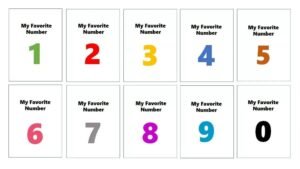Quizzes are more than just a fun way to test knowledge; they can significantly improve memory and recall. Whether used in education, training, or casual learning, quizzes help reinforce information and make it easier to remember. They provide an active learning experience, forcing the brain to recall details, which strengthens the neural pathways associated with that information. In this post, we’ll explore how quizzes can boost memory and recall, and why they are such a powerful tool for learning.

The Science Behind Memory and Recall
Before diving into the benefits of quizzes, it’s essential to understand how memory works. Memory involves encoding, storing, and retrieving information. The process of retrieval is where quizzes come into play. When you try to recall information from memory, you strengthen the connections between neurons, making it easier to access that information in the future. This is known as the “testing effect.”
The testing effect suggests that taking a quiz doesn’t just measure your knowledge, but actually helps improve your memory. By retrieving information under pressure, you reinforce your ability to recall that same information later. This is why quizzes are more effective for long-term retention compared to simple review or re-reading of materials.
How Quizzes Reinforce Learning
Quizzes offer an active form of learning. Instead of passively reviewing information, quizzes encourage you to actively engage with the material. This active recall strengthens your understanding and retention of the subject matter. The more frequently you test yourself on a particular topic, the more likely you are to retain that information over time.
Moreover, quizzes provide immediate feedback, which is crucial for reinforcing correct answers and correcting mistakes. If you get an answer wrong, the process of figuring out the right answer helps reinforce the correct information in your brain. This cycle of testing, feedback, and correction solidifies learning and boosts memory retention.
Quizzes Promote Spaced Repetition
Spaced repetition is a proven technique for improving memory, and quizzes are an excellent tool for implementing it. Instead of cramming information in one sitting, spaced repetition involves reviewing material at increasing intervals. Quizzes can be strategically timed to revisit material over time, enhancing retention and preventing forgetting.
For example, after initially learning new information, a quiz can be taken the next day, then a week later, and again a month later. Each repetition helps transfer information from short-term to long-term memory. Spaced repetition, when combined with quizzes, creates a powerful learning cycle that keeps information fresh and easy to recall.
Quizzes Encourage Focused Learning
Taking quizzes also helps you identify areas of weakness. When you’re quizzed on a particular subject, you become aware of the topics or concepts you struggle with. This self-awareness allows you to focus your learning efforts on those areas that need more attention. By addressing your weak points, you improve your overall understanding and ability to recall information more effectively.
Additionally, quizzes can reduce the tendency to overestimate one’s knowledge. Often, we think we know something well until we are quizzed on it. The challenge of recalling specific details pushes you to dive deeper into the material and ensures that your memory is more accurate and complete.
The Role of Gamification in Quizzes
Gamifying quizzes adds another layer of motivation and engagement. When quizzes are designed like games, with levels, rewards, and points, they can increase a learner’s engagement and interest. This element of fun makes the process of taking quizzes enjoyable, which enhances focus and encourages more frequent testing.
Gamified quizzes also create a sense of competition, whether it’s competing against others or trying to beat your previous score. This sense of achievement boosts motivation and keeps the brain active, helping to further solidify information in memory. The more enjoyable and interactive the quiz, the more likely you are to stick with it and improve your recall.
Conclusion
In conclusion, quizzes are a powerful tool for improving memory and recall. They activate the brain’s retrieval processes, reinforce learning through active recall, and promote spaced repetition. Quizzes also encourage focused learning by identifying weak areas and providing immediate feedback. When combined with gamification, quizzes become even more engaging and effective. Whether you’re studying for exams, learning a new skill, or simply trying to remember information, quizzes are an excellent method to boost long-term retention and enhance your ability to recall knowledge when you need it most.



